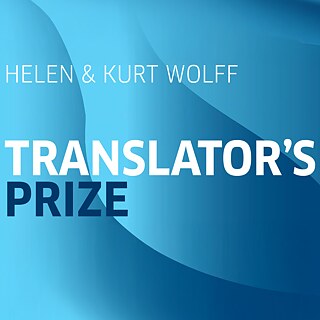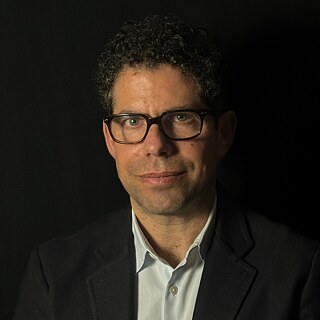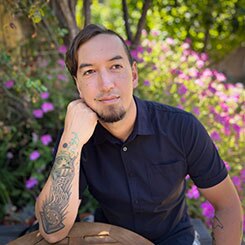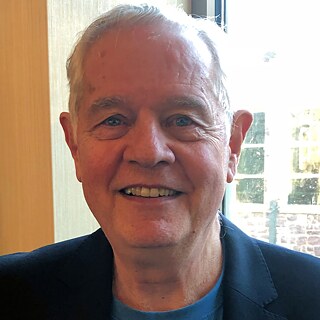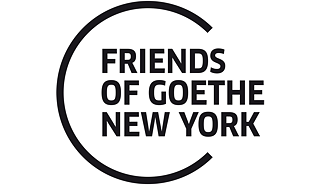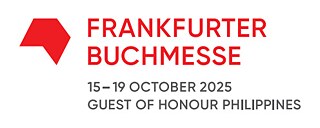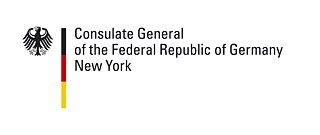Helen & Kurt Wolff Translator's Prize
Established in 1996 and newly funded by the Friends of Goethe New York, the Prize honors an outstanding literary translation from German into English published in the USA the previous year. The prizewinning translator receives $5,000 as well as a fully funded trip to the Frankfurter Buchmesse from October 15-19, 2025.
Submission Process
Publishers are encouraged to submit outstanding translations from German into English published in the US or Canada in the previous year (2024).
Translators cannot apply themselves, but must be nominated by their publishers.
Translators cannot apply themselves, but must be nominated by their publishers.
American and Canadian publishers are invited to submit a book-length translation from German into English that was published in the previous year.
Kindly mail five, physical copies of the translation to the following address:
Goethe-Institut New York
Helen & Kurt Wolff Translator's Prize
Attn: Dean Whiteside
30 Irving Place
New York, NY 10003
The deadline for submissions was January 17, 2025. The books must be received by this date.
- The translation must have been published (not only distributed) in Canada or the US in 2024.
- Entries may be fiction or non-fiction and may include: novels, novellas, short stories, plays, poetry, biographies, essays and correspondences.
- Translators awarded the prize in the last seven years are disqualified from consideration this year.
Kindly mail five, physical copies of the translation to the following address:
Goethe-Institut New York
Helen & Kurt Wolff Translator's Prize
Attn: Dean Whiteside
30 Irving Place
New York, NY 10003
The deadline for submissions was January 17, 2025. The books must be received by this date.
The prizewinning translator receives $5,000 as well as a fully funded trip to the Frankfurter Buchmesse from October 15-19, 2025.
The translator will be invited to New York for the award ceremony, which will take place at the Goethe-Institut New York.
The translator will be invited to New York for the award ceremony, which will take place at the Goethe-Institut New York.
Shelley Frisch, Princeton, NJ (Chair)
Elisabeth Lauffer, Hannacroix, NY
Philip Boehm, Houston, TX
Elisabeth Lauffer, Hannacroix, NY
Philip Boehm, Houston, TX
Submission Deadline
No further submissions will be accepted for the 2025 Helen & Kurt Wolff Translator's Prize. The deadline for submitting a translation was January 17, 2025.
About the Wolffs and the Prize
Kurt Wolff, joined later by his wife Helen, was one of the most outstanding and innovative publishers in Germany of the 1920s. Helen and Kurt Wolff immigrated to New York in 1941, and founded Pantheon Books, a publishing house devoted mainly to the translation of German and other European literature. Herman Broch, Stefan George and Robert Musil were among the authors they published. In 1961 the couple joined the firm Harcourt Brace Jovanovich where they became co-publishers with their own imprint "Helen and Kurt Wolff Books". Kurt Wolff died on October 21, 1963. Upon her husband's death, Helen Wolff continued to work with authors on the Wolff list, expanding it to include Karl Jaspers, Walter Benjamin, Uwe Johnson, Günter Grass, Max Frisch, Jurek Becker, Hans Joachim Schädlich, and many others.
Helen Wolff was recognized for her work with an Inter Nationes Award, the Goethe-Medaille, and honorary doctorates from Mount Holyoke, Smith College and Dartmouth College. In 1994 she was awarded the Friedrich Gundolf Prize by the Deutsche Akademie für Sprache und Dichtung (German Academy for Language and Literature) for her promotion of German culture in the USA, and for making German literature accessible to American readers. Helen Wolff died on March 28, 1994.
Helen Wolff was recognized for her work with an Inter Nationes Award, the Goethe-Medaille, and honorary doctorates from Mount Holyoke, Smith College and Dartmouth College. In 1994 she was awarded the Friedrich Gundolf Prize by the Deutsche Akademie für Sprache und Dichtung (German Academy for Language and Literature) for her promotion of German culture in the USA, and for making German literature accessible to American readers. Helen Wolff died on March 28, 1994.
Shelley Frisch, jury chair of the Helen & Kurt Wolff Translator’s Prize, reflects on the twenty-five year history of the prize, its significance to literature in translation, and its role in honoring the Wolff family’s extraordinary legacy in publishing.
By Shelley Frisch
On this auspicious occasion, the twenty-fifth anniversary of the Helen and Kurt Wolff Translator’s Prize, it is my honor to provide brief reflections on the prize’s significance for translators, translated literature, and the promotion of German-language literature-in-translation in North America. I have served on the Wolff jury since 2015 and as jury chair since 2016.
What makes this prize unique? It is theonlyprize awarded expressly and exclusively to English-language translations of German texts that have been published in the United States or Canada. And unlike translation prizes that accept submissions from a variety of source languages and judge the merits of the translations on the basis of how well the translation reads, the Wolff jurors go back to the German originals to trace the evolution of the new text, homing in on the challenges the source texts pose and following how the translated text accomplishes its transformation into English. We look carefully—and, so often, awestruck—at the inspired and ingenious choices made in turns of phrase, register, rhythm, and tone that enable the finest translations to take wing.
Since the inception of this prize in 1996, its seat has shifted both geographically—from its original home in Chicago to New York in 2015—and compositionally. The jury is composed of translators and literary critics. The early juries typically comprised four men and one woman, but the balance shifted over the years, and since 2012, each year’s prize has been judged by three women and two men. A plenary in-person meeting follows, close to the time of the ceremony. Like so much else in this pandemic year, the full jury meeting will need to take place remotely this spring.
The field of translation has been blossoming in recent years, with new translation studies degrees, certificate programs, and increased translator visibility as evidenced by translators’ names appearing on book covers and in promotional materials and book reviews, and by translators participating more actively in book launches and panel discussions. Helen and Kurt Wolff, who did so much to awaken interest in and nurture foreign literature in the United States, would have been pleased by these developments, and this translator’s prize, established in their names and administered by the Goethe-Institut, has done a great service in bringing together the translation community, spreading the word about outstanding works in German, and shining a light on translation and translators. The ceremony itself gathers together the jury, the editor of the winning text, the Goethe-Institut staff, representatives of other German cultural institutions, members of the media, and an appreciative public to join in the celebration of the prizewinning translator and text, with fine food and music enhancing the pleasure of the evening. There is always that moment of levity after the various laudations when the awardee is presented with a massive bouquet of flowers just before delivering remarks to the audience, then scrambles to find some way to give it right back so as to have hands free to grasp the podium and/or a prepared manuscript.
I’d like to conclude with a personal expression of gratitude to Helen and Kurt Wolff and their family. I met Helen Wolff in person many years ago at her New York office and retain fond memories of our extended conversation about publishing and translation. As for Kurt Wolff, he plays an outsized role, as Kafka’s publisher, in Reiner Stach’s three-volume Kafka biography, which I translated into English and for which I accepted this prize in 2014. Kafka was a reluctant submitter of texts, writing to Kurt Wolff after their first meeting, "I will always be grateful to you more for the return of a manuscript than for its publication." Wolff nonetheless managed on occasion to pry texts out of Kafka’s unwilling hands and publish as many as he could. Now his grandson, Alexander Wolff, has publishedEndpapers, a riveting account of the Wolff family history. His acknowledgments page is a warm tribute to the work of translators, and specifically to those who have won the Wolff prize. Alexander writes, "The bibliography [ofEndpapers] name-checks no fewer than eight winners of the Helen and Kurt Wolff Translator’s Prize … herzlichen Dank and huge thanks for all that they’ve done or do."
Kurt Wolff wrote to Karl Kraus in 1913: "I consider a publisher to be … a kind of seismographer, whose task it is to keep an accurate record of earthquakes. I try to take note of what the times bring forth in the way of expression [and] place it before the public." Our jury for the prize bearing the Wolffs’ name, indebted as ever to the strides Helen and Kurt Wolff made in fostering international literature, aims to carry on this seismographic task of bringing groundbreaking translation work by outstanding wordsmiths to the attention of the reading public at large.
--
Dr. Shelley Frisch taught at Columbia University and Haverford College, where she chaired the German Department, before turning to translation full-time in the 1990s. Her translations from the German, among them biographies of Friedrich Nietzsche, Albert Einstein, and Franz Kafka, have been awarded numerous translation prizes. Recent translations include Billy Wilder on Assignment; Jena 1800: The Republic of Free Spirits; The Aphorisms of Franz Kafka; and Adorno in Naples. She lives in Princeton, New Jersey.
Copyright: Shelley Frisch for Goethe-Institut New York
June 2021
By Shelley Frisch
On this auspicious occasion, the twenty-fifth anniversary of the Helen and Kurt Wolff Translator’s Prize, it is my honor to provide brief reflections on the prize’s significance for translators, translated literature, and the promotion of German-language literature-in-translation in North America. I have served on the Wolff jury since 2015 and as jury chair since 2016.
What makes this prize unique? It is theonlyprize awarded expressly and exclusively to English-language translations of German texts that have been published in the United States or Canada. And unlike translation prizes that accept submissions from a variety of source languages and judge the merits of the translations on the basis of how well the translation reads, the Wolff jurors go back to the German originals to trace the evolution of the new text, homing in on the challenges the source texts pose and following how the translated text accomplishes its transformation into English. We look carefully—and, so often, awestruck—at the inspired and ingenious choices made in turns of phrase, register, rhythm, and tone that enable the finest translations to take wing.
Since the inception of this prize in 1996, its seat has shifted both geographically—from its original home in Chicago to New York in 2015—and compositionally. The jury is composed of translators and literary critics. The early juries typically comprised four men and one woman, but the balance shifted over the years, and since 2012, each year’s prize has been judged by three women and two men. A plenary in-person meeting follows, close to the time of the ceremony. Like so much else in this pandemic year, the full jury meeting will need to take place remotely this spring.
The field of translation has been blossoming in recent years, with new translation studies degrees, certificate programs, and increased translator visibility as evidenced by translators’ names appearing on book covers and in promotional materials and book reviews, and by translators participating more actively in book launches and panel discussions. Helen and Kurt Wolff, who did so much to awaken interest in and nurture foreign literature in the United States, would have been pleased by these developments, and this translator’s prize, established in their names and administered by the Goethe-Institut, has done a great service in bringing together the translation community, spreading the word about outstanding works in German, and shining a light on translation and translators. The ceremony itself gathers together the jury, the editor of the winning text, the Goethe-Institut staff, representatives of other German cultural institutions, members of the media, and an appreciative public to join in the celebration of the prizewinning translator and text, with fine food and music enhancing the pleasure of the evening. There is always that moment of levity after the various laudations when the awardee is presented with a massive bouquet of flowers just before delivering remarks to the audience, then scrambles to find some way to give it right back so as to have hands free to grasp the podium and/or a prepared manuscript.
I’d like to conclude with a personal expression of gratitude to Helen and Kurt Wolff and their family. I met Helen Wolff in person many years ago at her New York office and retain fond memories of our extended conversation about publishing and translation. As for Kurt Wolff, he plays an outsized role, as Kafka’s publisher, in Reiner Stach’s three-volume Kafka biography, which I translated into English and for which I accepted this prize in 2014. Kafka was a reluctant submitter of texts, writing to Kurt Wolff after their first meeting, "I will always be grateful to you more for the return of a manuscript than for its publication." Wolff nonetheless managed on occasion to pry texts out of Kafka’s unwilling hands and publish as many as he could. Now his grandson, Alexander Wolff, has publishedEndpapers, a riveting account of the Wolff family history. His acknowledgments page is a warm tribute to the work of translators, and specifically to those who have won the Wolff prize. Alexander writes, "The bibliography [ofEndpapers] name-checks no fewer than eight winners of the Helen and Kurt Wolff Translator’s Prize … herzlichen Dank and huge thanks for all that they’ve done or do."
Kurt Wolff wrote to Karl Kraus in 1913: "I consider a publisher to be … a kind of seismographer, whose task it is to keep an accurate record of earthquakes. I try to take note of what the times bring forth in the way of expression [and] place it before the public." Our jury for the prize bearing the Wolffs’ name, indebted as ever to the strides Helen and Kurt Wolff made in fostering international literature, aims to carry on this seismographic task of bringing groundbreaking translation work by outstanding wordsmiths to the attention of the reading public at large.
--
Dr. Shelley Frisch taught at Columbia University and Haverford College, where she chaired the German Department, before turning to translation full-time in the 1990s. Her translations from the German, among them biographies of Friedrich Nietzsche, Albert Einstein, and Franz Kafka, have been awarded numerous translation prizes. Recent translations include Billy Wilder on Assignment; Jena 1800: The Republic of Free Spirits; The Aphorisms of Franz Kafka; and Adorno in Naples. She lives in Princeton, New Jersey.
Copyright: Shelley Frisch for Goethe-Institut New York
June 2021
Alexander Wolff, grandson of Kurt Wolff and author of Endpapers: A Family Story of Books, War, Escape, and Home, elucidates his grandfather's perennial undertaking to establish himself as a publisher on both sides of the Atlantic.
By Alexander Wolff
Kurt Wolff lived a life long and audacious enough that his career as a book publisher, in Germany and the U.S. alike, included two full cycles of rise and fall.
My grandfather’s professional fortunes came bound up in the hard turns of the history of the twentieth century. In 1913, at 25, he founded the Kurt Wolff Verlag in Leipzig. The house would highlight voices of das Neue, writers ready to flout the hidebound culture of the dying monarchies of Europe—Franz Kafka, Karl Kraus, Franz Werfel, Joseph Roth, Heinrich Mann. As Germany struggled to regain its footing after the war, the Kurt Wolff Verlag struggled too, suffering from the Weimar hyperinflation and, by the end of the Twenties, surging Nazism.
Kurt could trace converted Jews for several generations on his mother’s side, but the Third Reich disapproved mostly of his "degenerate" authors. He fled Germany hours after the Reichstag fire, first to London, where he married Helen Mosel, who would remain his lifelong companion and collaborator. After eight years in exile, in France and Italy, Kurt and Helen escaped through Lisbon with the help of Varian Fry, landing in New York in March 1941. By the end of that year they had founded Pantheon Books, which issued in translation the work of Stefan George, Hermann Broch, and Robert Musil, as well as the firm’s first bestseller, The Complete Grimms’ Fairy Tales.
Peace brought prosperity to the U.S., but not to Pantheon, which through the mid-Fifties continued to privilege literary titles over commercial ones. Only the steady patronage of the Bollingen Foundation, and Anne Morrow Lindbergh’s bestselling Gift from the Sea, kept the house afloat until, in 1958, Kurt and Helen landed the rights to Boris Pasternak’s Doctor Zhivago.
In my book Endpapers, I explain how Doctor Zhivago’s success came as a mixed blessing:
Kurt and Helen left Pantheon and returned to Europe amidst more irony. In exile in New York,
My grandfather would enjoy one last hurrah. In 1960 William Jovanovich, CEO of Harcourt, Brace & World, invited Kurt and Helen to establish their own imprint under Harcourt’s auspices. The Wolffs soon signed Günter Grass and other European writers of note. Barely three years later, en route to the German Literary Archive in Marbach, Kurt was killed in a mishap with a truck. Helen moved back to New York, where she carried on the Helen and Kurt Wolff Books imprint for another thirty years, publishing among others Walter Benjamin, Max Frisch, Karl Jaspers, and Uwe Johnson.
Three separate times Kurt established himself as a publisher—in Germany until the rise of the Nazis; in New York until he lost that boardroom power struggle; and remotely from Switzerland, with Harcourt, for those final few years. In each instance this man, touted as "the most discriminating publisher of the twentieth century" by the New York Times Book Review, did so on his own terms, which he had articulated when he started out: "I only want to publish books I won’t be ashamed of on my deathbed."
--
Alexander Wolff spent thirty-six years on staff at Sports Illustrated. He is author or editor of nine books, including the New York Times bestseller Raw Recruits and Big Game, Small World, which was named a New York Times Notable Book. A former Ferris Professor of Journalism at Princeton, he lives with his family in Vermont.
Copyright: Excerpts from Endpapers by Alexander Wolff, copyright © 2021 by Alexander Wolff. Reprinted by permission of Atlantic Monthly Press, an imprint of Grove Atlantic.
June 2021
By Alexander Wolff
Kurt Wolff lived a life long and audacious enough that his career as a book publisher, in Germany and the U.S. alike, included two full cycles of rise and fall.
My grandfather’s professional fortunes came bound up in the hard turns of the history of the twentieth century. In 1913, at 25, he founded the Kurt Wolff Verlag in Leipzig. The house would highlight voices of das Neue, writers ready to flout the hidebound culture of the dying monarchies of Europe—Franz Kafka, Karl Kraus, Franz Werfel, Joseph Roth, Heinrich Mann. As Germany struggled to regain its footing after the war, the Kurt Wolff Verlag struggled too, suffering from the Weimar hyperinflation and, by the end of the Twenties, surging Nazism.
Kurt could trace converted Jews for several generations on his mother’s side, but the Third Reich disapproved mostly of his "degenerate" authors. He fled Germany hours after the Reichstag fire, first to London, where he married Helen Mosel, who would remain his lifelong companion and collaborator. After eight years in exile, in France and Italy, Kurt and Helen escaped through Lisbon with the help of Varian Fry, landing in New York in March 1941. By the end of that year they had founded Pantheon Books, which issued in translation the work of Stefan George, Hermann Broch, and Robert Musil, as well as the firm’s first bestseller, The Complete Grimms’ Fairy Tales.
Peace brought prosperity to the U.S., but not to Pantheon, which through the mid-Fifties continued to privilege literary titles over commercial ones. Only the steady patronage of the Bollingen Foundation, and Anne Morrow Lindbergh’s bestselling Gift from the Sea, kept the house afloat until, in 1958, Kurt and Helen landed the rights to Boris Pasternak’s Doctor Zhivago.
In my book Endpapers, I explain how Doctor Zhivago’s success came as a mixed blessing:
"Pantheon suddenly found itself with a windfall, and the prospects for a firm long content with its particular "physiognomy," as Helen liked to say, were no longer a matter of theory. American publishers now competed for the rights to sell textbooks to the school districts beginning to educate the baby boom generation. This would lead Wall Street to take more interest in the sector, sparking mergers and takeovers; publishers were fated to become merely one division within a conglomerate, expected to supply a healthy contribution to the greater bottom line. Kurt and Helen championed the idealistic side in this incipient debate, arguing that high literary standards would deliver adequate financial returns over the long term. But [others] wanted to take Pantheon down a more modern, commercial path—and they held the cards. The irony was especially bitter. A best seller, delivered to the house because of trust in the Wolffs’ discretion and reputation, forced a confrontation that Kurt and Helen would lose. In a sense, history foretold it. The cultural historian Anthony Heilbut likens German refugee intellectuals in the United States to the European court Jews of old, men like Kurt’s ancestor [and former court banker of Baden] Salomon von Haber. "They exerted great authority in some areas, but in other places they remained vulnerable," Heilbut writes. Life on both sides of the Atlantic ultimately delivered "alarm and betrayal.""
Kurt and Helen left Pantheon and returned to Europe amidst more irony. In exile in New York,
"forced to make a living at the only thing he knew, Kurt did so against the odds and with great flair. Ironically, in Germany before World War I, he had rankled rival publishers with "American" book-selling tactics—colorful jackets, popular prices, bold designs in newspaper ads and kiosk placards. But something Old World at his core put him at loggerheads with the business culture of his new homeland...
Kurt saw no choice but to flee again, back across the ocean, to Switzerland—literally to a neutral corner..."
Kurt saw no choice but to flee again, back across the ocean, to Switzerland—literally to a neutral corner..."
My grandfather would enjoy one last hurrah. In 1960 William Jovanovich, CEO of Harcourt, Brace & World, invited Kurt and Helen to establish their own imprint under Harcourt’s auspices. The Wolffs soon signed Günter Grass and other European writers of note. Barely three years later, en route to the German Literary Archive in Marbach, Kurt was killed in a mishap with a truck. Helen moved back to New York, where she carried on the Helen and Kurt Wolff Books imprint for another thirty years, publishing among others Walter Benjamin, Max Frisch, Karl Jaspers, and Uwe Johnson.
Three separate times Kurt established himself as a publisher—in Germany until the rise of the Nazis; in New York until he lost that boardroom power struggle; and remotely from Switzerland, with Harcourt, for those final few years. In each instance this man, touted as "the most discriminating publisher of the twentieth century" by the New York Times Book Review, did so on his own terms, which he had articulated when he started out: "I only want to publish books I won’t be ashamed of on my deathbed."
--
Alexander Wolff spent thirty-six years on staff at Sports Illustrated. He is author or editor of nine books, including the New York Times bestseller Raw Recruits and Big Game, Small World, which was named a New York Times Notable Book. A former Ferris Professor of Journalism at Princeton, he lives with his family in Vermont.
Copyright: Excerpts from Endpapers by Alexander Wolff, copyright © 2021 by Alexander Wolff. Reprinted by permission of Atlantic Monthly Press, an imprint of Grove Atlantic.
June 2021
Contact
-

Dean Whiteside
Library and Information Project Manager
Goethe-Institut New York
